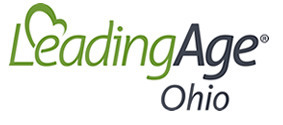Complete Story
09/21/2023
AL Waiver Rules Propose Memory Care Requirements; Rates Forthcoming
Last Friday afternoon, the Ohio Department of Aging (ODA) published draft rules revising the certification criteria for Ohio's assisted living waiver. The rules reflect significant changes particularly as they pertain to the newly-created add-on payment for memory care. The rules do not include the rule appendix with reimbursement levels, but contacts at the Department of Aging indicate that rates should be available in the coming days. In the rules, two different levels of provider certification are outlined with significant new requirements for any assisted living community seeking the add-on payment for memory care.
The rule package also includes aggregate responses to a survey of assisted living providers conducted in August, which informed the development of the rules. One hundred seventy-eight of 393 total certified assisted living providers responded to the survey, with between 50 and 70 responding to most of the individual questions in the survey.
Last week, LeadingAge Ohio met with the Department of Aging to share initial impressions of the rule and concerns regarding the expansive nature of some of the memory care requirements, noting many are more restrictive than existing rules for higher levels of care, including nursing facilities.
Yesterday, the LeadingAge Ohio Clinical / Operations Subcommittee met for a complete review of the rules, noting numerous areas where they will oppose the draft language, and brainstorming possible improvements to the rule.
Proposed requirements for memory care include the following:
- Mission Statements: Having a “mission statement” that includes how its memory care differs from its basic assisted living service
- Activities: Providing or arranging or at least three therapeutic, social, or recreational activities listed in rule 3701-16-11 of the Administrative Code per day with consideration given to each individual’s preferences and designed to meet each individual’s needs.
- Outdoor Spaces: Ensuing safe access to outdoor space for all individuals.
- Resident Call System: Assisting each individual who makes a call through the resident call system in person in fewer than 10 mins. after the individual initiates the call.
- Medical Directors: Having a medical director whose responsibilities include all of the following:
- Meeting periodically with management, nursing, and other professional staff to discuss clinical and administrative issues.
- Acting as a liaison between the attending physicians and other health professionals caring for the individual.
- Being available to consult when an individual’s personal physician is not available.
- Assisting management and nursing staff in ensuring a safe and sanitary environment for individuals and staff by reviewing incidents, identifying environmental hazards to health and safety, and advising the provider on possible corrections or improvements to the facility’s environment.
- Promoting residents’ rights adhering to the person-centered services plans and adopting the person-centered planning principles in rule 5160-44-02 of the Administrative Code.
- Availability/Staffing: Maintaining both of the following:
- A sufficient number of registered nurses (RNs), or licensed practical nurses (LPNs) under the direction of an RN, on call available at all times for individuals receiving memory care.
- A staffing ratio of at least 1 staff member who provides personal care services for up to every 10 individuals receiving memory care with at least 1 staff member who provides personal care services on each floor of the residential care facility (RCF) if the RCF provides memory care on multiple floors.
- Initial Staff Qualifications: Including the following topics in the training required by the Ohio Department of Health (ODH):
- Overview of dementia: symptoms, treatment approaches, and progression.
- Foundations of effective communication in dementia care.
- Common behavior challenges and recommended behavior management techniques.
- Current best practices in dementia care.
- Missing resident prevention and response.
- In-Service Training: Including dementia care in each year’s in-service training.
It is yet unclear whether the upcoming revisions to Ohio’s residential care facility (RCF) licensure rules will include memory care requirements that mirror those in the draft certification rules.
Members are strongly encouraged to consider the impact of the rules to their organizations and email concerns and comments to Tiffany Bukoffsky, Director of Public Policy at tbukoffsky@leadingageohio.org. Members are also encouraged to participate in the comment period by composing their own comments. The full rule package, including instructions for submitting comments, may be found at the ODA Rules website.
